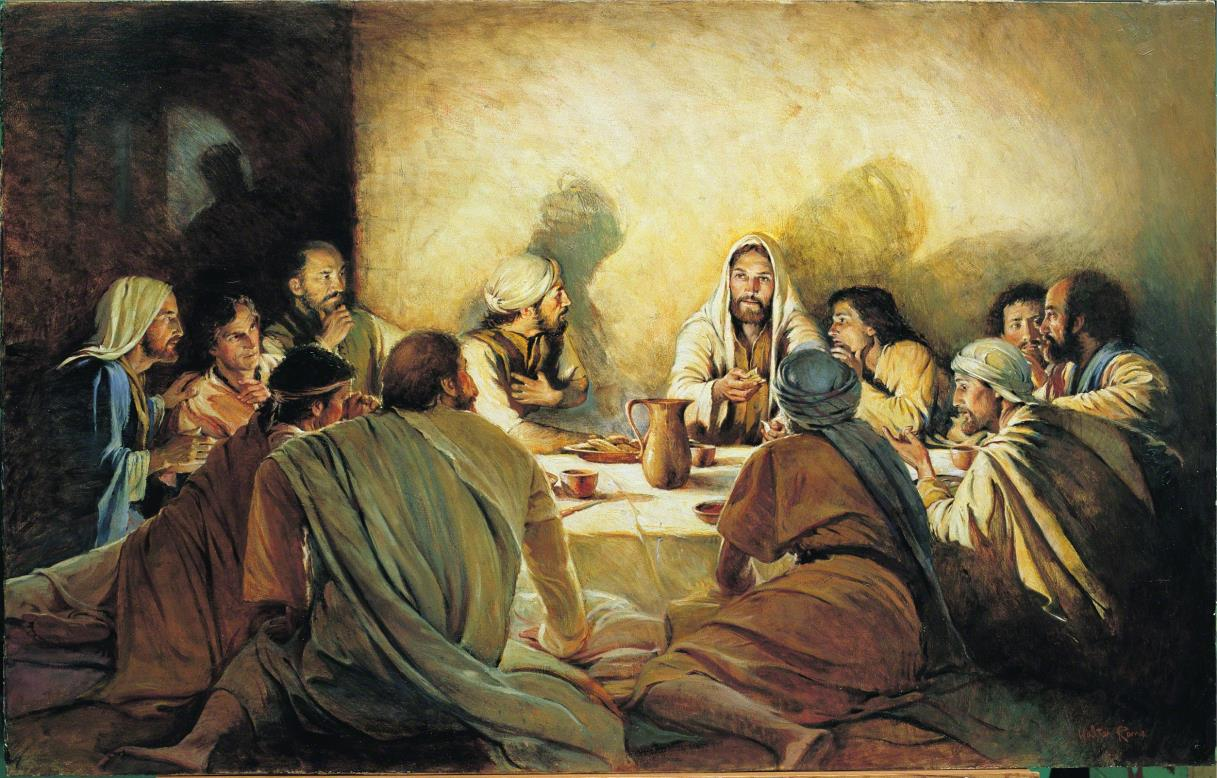Holy Supper
Why is the holy supper called “communion”?
But I plead not only for these alone, but also for those who believe in Me through their word, that they all may be one, as Thou, Father, art in Me and I in Thee, that they also may be one in Us; that the world may believe that Thou hast sent Me (John 17:20–21).
The church scattered throughout the whole globe … is called a communion, because it is as one body under one head (DLW 25).
In the heavens there is a communion [or sharing] of all goods. There the peace, intelligence, wisdom, and happiness of all are communicated to everyone, and that of everyone is communicated to all, yet to each according to the reception of love and of faith from the Lord (AC 10723).
Those who are outside the Church, and yet acknowledge one God, and live according to their religion in a kind of charity toward the neighbor, are in communion with those who are of the Church, because no one is condemned who believes in God, and lives well. From this it is evident that the Lord’s Church is everywhere in the whole world, although specifically it is where the Lord is acknowledged, and where the Word is (AC 10765).
It is well known that in the world conjunctions and affiliations are brought about by invitations to the table and by feasts, for the host thereby intends something that contributes to some end that looks to harmony or friendship; much more so the invitations that have spiritual objects in view. Feasts in the ancient churches and also in the primitive Christian church were feasts of charity, at which they strengthened each other to abide in the worship of the Lord with sincere hearts (TCR 727).
It is because dinners and suppers or feasts signified such association of minds that they are so frequently mentioned in the Word, and nothing else is there meant by them in the spiritual sense; and the same is meant in the highest sense by the Passover supper among the children of Israel, also by their banquet at other festivities, and by their eating together of the sacrifices near the tabernacle. Conjunction itself was then represented by the breaking and distribution of bread, and by drinking from the same cup and handing it to another (TCR 433:e).
Why do we kneel for holy supper, if we are able?
Holy fear with its consequent humiliation, and therefore adoration, has acts or gestures corresponding to itself, namely, bending the knees, falling down upon the knees, and also prostrating the body down to the earth. In this state, if the adoration is from genuine humiliation, or if the humiliation is from genuine holy fear, there is a failing of the spirits, and hence a giving way of the joints in the border or intermediate region where the spiritual is conjoined with the natural, thus where the knees are; for the parts below have correspondence with natural things, and those above with spiritual things. Hence it is that the bending of the knees is a sign representative of adoration. With celestial men this act is spontaneous; but with spiritual men it is a result of will (AC 5323).
People in whom there is humility of heart plead for the Lord’s mercy, but those in whom there is humility of thought seek His grace. Or if the latter do plead for mercy they do so in a state of temptation, or with the lips only and not with the heart (AC 598:2).
Celestial people acknowledge that the human race is wholly unclean, and in itself excrementitious and hellish, on account of which they plead for the Lord’s mercy (AC 980). The more anyone loves himself and imagines that he is able to do good of himself and so merit salvation, the less he is able to plead for the Lord’s mercy (AC 981).
That the whole of the Lord’s redemption is in the Holy Supper follows from what has already been said, since where the Lord is wholly present there also is His whole redemption; for it is in respect to His Human that He is the Redeemer, and thus also redemption itself. Where He is wholly present no part of redemption can be absent. Consequently, all who approach the Holy Communion worthily become His redeemed (TCR 717).
Questions
- Does taking holy supper together with fellow members of the congregation strengthen you “to abide in the worship of the Lord with a sincere heart”?
- Is it right to think of helping others when partaking?
- Should husband and wife partake together? If so, how?
- Can you remember a time when kneeling before the Lord came spontaneously?
- Does your sense of humility increase during your preparation for and receiving of the holy supper, at least for that time?
- The whole of the Lord’s redemption is present in the holy supper! Is there any sin the Lord cannot give us strength to overcome?
| previous |  |
next |
|---|


